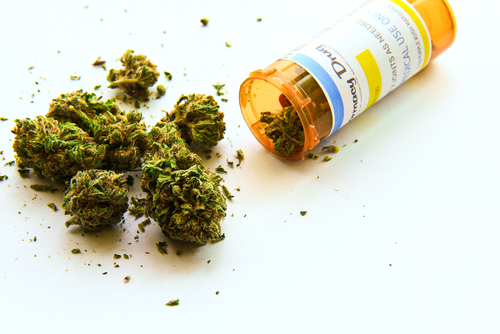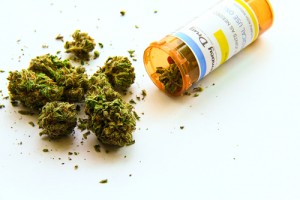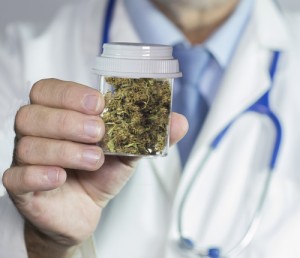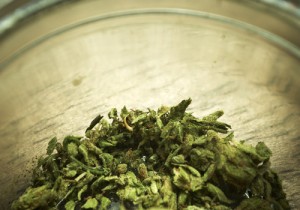Ireland Eases Medical Marijuana For MS Restrictions; Canada Cracks Down; US States Legalize; Researchers Debate
Written by |

 The Republic of Ireland is legalizing the medical prescription of cannabis for people with Multiple Sclerosis, under a new revision to current Irish laws.
The Republic of Ireland is legalizing the medical prescription of cannabis for people with Multiple Sclerosis, under a new revision to current Irish laws.
The Irish Mirror reports that Pat O’Mahony, CEO of Ireland’s Health Products Regulatory Authority (HPRA) confirmed July 7 that the Department of Health is drafting legislation to allow medicinal cannabis to be made available for patients.
Mr. Mahoney is cited noting that the reform has been in the proposal stage for about four years, and describing its passage as a “very important step forward.” He further explains that while his department finished its assessment some time ago, there was an appeal to the High Court which was resolved very recently, and his understanding is that policy makers in the Department of Health are poised to issue a revision to existing legislation that will make the product available in the marketplace. He also confirmed that cannabis would be available by prescription and that physicians will be able to write prescriptions for pharmacists to fill, as with any other prescription pharmaceutical product.
Meanwhile, Canada’s Conservative government continues to throw up hurdles to use of medical marijuana, which has been legal on a highly regulated basis since 2000, when the first of a series of court decisions invalidated prohibition of marijuana, based on insufficiency of exemptions provided for legitimate medical users of the drug. The 2000 Ontario Court of Appeal ruling in R. v. Parker was a landmark decision that first invalidated Canada’s marijuana prohibition, finding it unconstitutional because it contained no exemption for medical use. There are currently about 40,000 licensed users nationwide.
However, since attaining power in 2006, the Conservative federal government of Stephen Harper has whittled away at legal access to medical marijuana, increasing the level and complexity of bureaucratic gatekeeping, and imposing draconian three-year mandatory sentences for possession of more than six marijuana plants. On April 1, Health Canada radically altered medical marijuana regulations, opening production up to commercial interests and removing the provision for licensed medical marijuana users to grow their own supply, or to have a third party grow it for them, although a Federal Court preemptively muddied the legal waters, ruling March 21 that users licensed for personal production as of Sept. 30, 2013, would be able to keep growing their pot at home pending outcome of future litigation.
[adrotate group=”4″]
The government’s latest obstructive strategy is Big Brotherish new regulations proposed in June that would oblige government-licensed medical marijuana suppliers to provide provincial health care authorities with information on doctors who prescribe marijuana for their patients in the form of semi-annual reports that reportedly would include the doctor’s name and address, how much of the substance was prescribed and for how long. Health Canada affirms the current Government of Canada’s philosophical position on the issue, tersely stating on its Website in boldface: “Dried marijuana is not an approved drug or medicine in Canada. The Government of Canada does not endorse the use of marijuana, but the courts have required reasonable access to a legal source of marijuana when authorized by a physician.”
In the U.S., medical marijuana is now legal in 17 states. In California a simple doctor’s prescription has been all you’ve needed since 1996. More than a dozen other state legislatures, including those of Illinois, New York, and Pennsylvania, have recently considered medical marijuana bills, and voter initiatives on the issue are coming in at least three states. Additionally, Colorado and Washington have legalize recreational use of marijuana, which renders the medical access issue in those two states largely moot.
However, medical marijuana remains controversial. In April, Brian Lee of the Worcester, Massachusetts Telegram & Gazette reported that a study by researchers from Northwestern University in Chicago and Massachusetts General Hospital/Harvard Medical School in Boston, published in the Journal of Neuroscience, found abnormalities in the brains of young adults who regularly smoked marijuana, and noting that with nearly three dozen medical marijuana facilities set to open in Massachusetts this summer, the findings highlight a concern about potential substance abuse due to increased access.
On the other hand, Lee cites Dr. Joseph W. McSherry, a neurologist and University of Vermont professor, assailing the study, which was funded by the National Institute on Drug Abuse, the Office of National Drug Control Policy, Counterdrug Technology Assessment Center, and the National Institute of Neurological Disorders and Stroke as more “gibberish from NIDA,” and observing that, for example, old research shows London taxicab drivers have large map areas in their brains, while musicians have unusually large areas around their finger motor cortex, and suggesting that the NIH stop wasting money on NIDA studies, which do “funny things to data in the areas I know about.”
 Cannabinoids And MS – The Science
Cannabinoids And MS – The Science
There is also a substantial body of research supporting the medical use of marijuana, and Ireland’s Pat O’Mahony’s affirmation that cannabis is prescribed in many European countries and has proved “very helpful for the muscle spasms that MS patients suffer.”
For example, a multicenter randomized placebo-controlled trial published in The Lancet entitled “Cannabinoids for treatment of spasticity and other symptoms related to multiple sclerosis” (2003 Nov 8;362(9395):1517-26) involved 657 people with MS at 33 clinical centers across the United Kingdom of Great Britain and Northern Ireland For a 13 week period, participants received either cannabis oil, synthetic tetrahydrocannabinol (THC, the active ingredient in marijuana) or inactive placebo. All substances were taken orally (by mouth). The study was double-blinded so neither participants nor the examining physicians knew who was receiving which treatment.
The researchers noted that multiple sclerosis is associated with muscle stiffness, spasms, pain, and tremor, and that there is substantial anecdotal evidence suggesting that cannabinoids could help these symptoms. The study’s aim was to test the notion that cannabinoids have a beneficial effect on spasticity and other symptoms related to multiple sclerosis.
The primary outcome was the measurement of muscle spasticity as assessed by the standardized Ashworth scale. Secondary outcomes were mobility and participant perception of symptom improvement including irritability, depression, tiredness, muscle stiffness, tremor, pain, sleep, muscle spasms, energy levels and bladder function.
Data was obtained from 630 participants, and while there was no objective evidence of a treatment effect on the primary study focus of muscle spasticity, the authors note that the Ashworth scale is known to measure only one aspect of spasticity. When physicians asked participants to subjectively rate their sense of whether the agent they had taken (cannabis or placebo) had improved their symptoms, significantly more participants taking either cannabis oil or THC reported subjective improvements in spasticity, spasms, sleep and pain, but not tremor or bladder symptoms.
Among secondary outcomes studied was the time it took to walk 10 meters. Walking times before and during treatment were obtained from 278 participant, and a reduction in walking time by 12 percent was noted in the group taking THC, compared to a reduction of 4 percent in both the cannabis oil and placebo groups — a statistically significant difference.
The investigators also noted fewer relapses in the treatment groups, and of nine MS relapses that occurred during the study period, seven were in the placebo group and one each in the treatment groups. Encouraging, but far from conclusive.
 Canadian Survey – Cannabis Use as Described by People with Multiple Sclerosis
Canadian Survey – Cannabis Use as Described by People with Multiple Sclerosis
In a Canadian survey, researchers at the MS Clinic, University of Calgary mailed questionnaires to 780 adults who were registered with the clinic. A total of 480 people (62 percent) completed the questionnaire. Mean sample age was 48 years and 75 percent were women. The level of disability ranged from mildly to severely impaired. The study, which was funded by the MS Society of Canada, was reported in The Canadian Journal of Neurological Sciences, August 2003.
Among the respondents, 72 percent of respondents said it should be legal to use marijuana for medical use and 96 percent were aware that it might potentially be useful as a treatment, but just 43 percent reported having used marijuana, and not all of that use was for medical purposes.
Of the 176 people who had tried marijuana, 35 percent said it was to help relieve MS symptoms, and sixty-four percent of these were currently using marijuana. Symptoms perceived to be relieved were anxiety/depression (67 percent), spasticity (58 percent), chronic pain (49 percent) and fatigue (40 percent). Of those using marijuana, 54 percent said they felt much better and 39 percent said they felt a little better. As with the British study, fewer said they had experienced improvement in bladder problems.
Those who had stopped using marijuana to treat their MS symptoms cited cost, dislike of side effects, legal concerns and lack of effectiveness as reasons.
In its commentary on the 2003 British and Canadian research, The Multiple Sclerosis Society of Canada noted that The British study was, at least at the time, the largest examination on the effect of marijuana extracts on MS symptoms, and demonstrated that oral derivatives of marijuana do not provide objective measures of improvement related to spasticity. However, both the scientific British clinical trial and the unscientific Canadian survey, supported previous observations by people with MS that marijuana does result in subjective improvements that could not be measured by physicians.
Both research groups also noted the dangers of smoked marijuana because of the risk associating with inhaling potentially dangerous substances in the smoke.
Commenting in an editorial in The Lancet that accompanied the British marijuana research study, Drs. Luanne Metz and Stacey Pace, both involved in the Canadian research, stated: “Hopefully [this]…study will stimulate further research to develop safe and effective formulation of cannabis, and will inform debate over the social and legal restrictions that limit its use. In the meantime when other treatment inadequately controls spasticity, oral cannabinoids should be considered where law permits their possession and use.”
Nearly a dozen years on, the debate continues.
[adrotate group=”4″]
Medical Marijuana.ca , an interest group committed to providing the best care and attention to the MS community by helping leverage all the benefits of medical marijuana legally, notes that while Multiple Sclerosis is an approved Category 1 Health Canada medical marijuana condition. medical Marijuana is NOT [emphasis theirs] for everyone, and is often a last resort for people that have tried a variety of the pharmaceuticals below with little relief or too many side effects. They affirm that while strong anecdotal evidence exists supporting use of medical marijuana in treating MS symptoms, scientific research has been hampered by government legislation.
As to alternatives, that observe that drugs commonly prescribed for muscle spasticity and tremor include Klonopin, Dantrium, Baclofen (Medtronic), Zanaflex, Klonopin (Clonazepam) and Valium (diazepam), all of which come with a list of side effects, which can range from feeling lightheaded or drowsy, to slurred speech, blurred vision, changes in sexual drive and performance, gastrointestinal changes, muscle spasms and a fast or pounding heartbeat.
On the other hand, they note that MS Patients have reported that smoking medical marijuana reduces symptoms such as muscle stiffness and tremors, and allows for greater mobility, and that many studies of the pharmacology of marijuana have identified effects on motor systems of the central nervous system that have the potential of affecting tremor and spasticity.
Moreover, they affirm that marijuana has demonstrated effects on immune function that also may have the potential of reducing the autoimmune attack that is thought to be the underlying pathogenic process in MS, and that some researchers believe cannabinoids in marijuana could create immune suppression, and that much like steroids, but with fewer side effects, cannabinoids can “switch off” a portion of the immune response and bring down inflammation and hyperactivity of immune cells, possibly preventing or slowing some of the damage caused to the myelin by immune cells. The cannabinoids do this by interacting with the receptors on specific immune cells.
Based on science, as opposed to fear-mongering in aid of advancing political and ideological agendas, it would appear that marijuana is one of the safest potentially beneficial drugs known.
Writing in Alternet, Paul Armentano, Deputy Director of NORML (National Organization for the Reform of Marijuana Laws) and the NORML Foundation, notes that while proponents of legalizing cannabis for medicinal purposes are fond of arguing that the plant must be subjected to the same standards of clinical study and FDA review as conventional medicines, what they fail to mention is that cannabis and its active components have already been subjected to a greater degree of scientific scrutiny than many FDA-approved pharmaceuticals. Moreover, Mr. Armentano reports that there are more than 20,000 published studies or reviews in the scientific literature referencing the cannabis plant and its cannabinoids, nearly half of which were published within the last five years, more than 100 of which are controlled clinical trials assessing the therapeutic efficacy of cannabinoids for a variety of indications.
In another article originally appearing in Alternet, republished by Salon, Mr. Armentano cites a World Health Organization commissioned review comparing health and societal consequences of marijuana use compared to other controlled substances, including alcohol, nicotine and opiates, concluding: “Overall, most of these risks (associated with marijuana) are small to moderate in size. In aggregate they are unlikely to produce public health problems comparable in scale to those currently produced by alcohol and tobacco. On existing patterns of use, cannabis poses a much less serious public health problem than is currently posed by alcohol and tobacco in Western societies.”
Mr. Armentano notes other studies revealing that marijuana contains more than 60 active compounds likely possessing distinctive therapeutic properties, including anti-cancer properties, anti-diabetic properties, neuroprotection, and anti-stroke properties of cannabinoids other than tetrahydrocannabinol (THC), the primary psychoactive compound of cannabis, which itself has valuable therapeutic effects.
But don’t expect the controversy to disappear any time soon.


